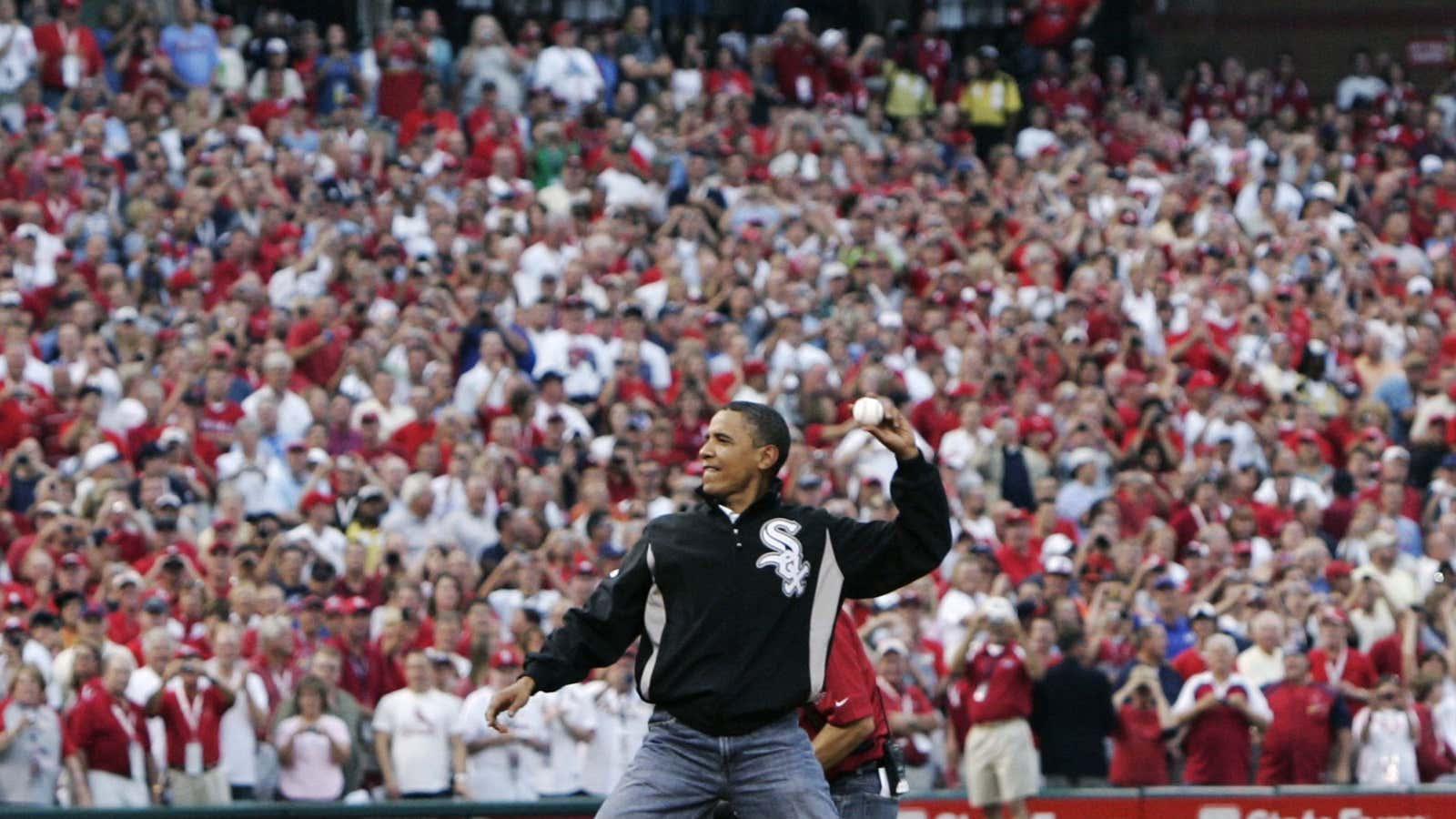Among the more than one million comments about net neutrality received by the US government this year was a submission by… Major League Baseball (MLB).
The US Federal Communications Commission (FCC) is currently reviewing new rules that could allow internet providers to charge content companies for a more direct connection to customers. Some big content distributors (most notably, Netflix) have come out hard against these so-called “fast lanes,” arguing that they effectively amount to an internet tax or toll.
But MLB has become an important player in streaming video. As I wrote last month, an offshoot of the league, MLB Advanced Media (or BAM as it’s known in the industry) is now America’s largest distributor of live video on broadband networks.
Earlier this month, BAM quietly submitted its own letter to the FCC, where it was equally scathing about internet fast lanes (hat tip to Multichannel’s John Eggerton). It’s a shame that BAM’s comments have been overlooked, because they amount to one of the most coherent arguments in favor of net neutrality we have come across. For example:
Fast lanes would serve only one purpose: for Broadband ISPs to receive an economic windfall. American consumers would be worse off as the costs of fast lanes are passed along to them in new fees or charges where there were none, or higher fees or charges where they existed.
And later:
[S]ince fast lanes would necessarily mean there are slow lanes, they would amount to “picking winners and losers online,” with Broadband ISPs acting as fast lane “gatekeepers,” precisely the opposite of the Commission’s past policy.
BAM employs about 700 people and is on track to generate $800 million in revenue this year. It runs professional baseball’s digital properties, including the websites and social media properties of MLB’s 30 franchises. But it’s best known for its online streaming prowess. It runs the league’s own streaming platform, mlb.tv, and is now even selling services to clients like ESPN and the professional wrestling organization WWE.
It therefore has a vested interest in seeing the web remain as open as possible. Yet the letter is no less persuasive, demolishing the ISPs arguments that fast lanes are needed to fund infrastructure upgrades as “unsupported by the facts” (the industry is churning out profits and enjoys 60% profit margins on broadband, it argues).
“The Commission would be rolling the dice by allowing “commercially reasonable” fast lane deals,” the BAM submission says. “We are equally as concerned about how fast/slow lane regulations could be adequately enforced.”
The US political establishment (particularly presidents), have tended to pay a lot of attention to the so-called national pastime over the years. Whether this will apply to net neutrality (ISPs are among the biggest spenders on lobbying in Washington) remains to be seen.
